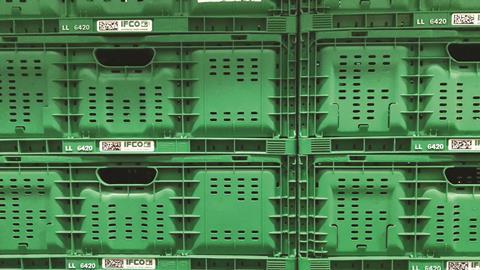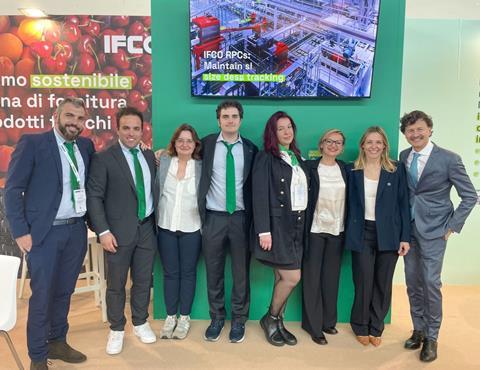Reusable packaging specialist expands logistics footprint to strengthen regional partnerships and ensure container availability during peak seasons

Reusable food packaging specialist Ifco says it has expanded its logistics footprint in southern Italy with the addition of new hubs in Puglia, Lazio, and Sicily, three of the country’s most important regions for fruit and vegetable exports.
With the goal of providing better service to growers and enhancing its own operational efficiency, the company said this strategic expansion would strengthens its regional partnerships and ensure availability of reusable packaging containers (RPCs) during peak harvest seasons, when demand and time sensitivity are at their highest.
Ifco already operates several facilities in the country, including transit points in Catania, a washing centre in Calabria, and hubs between Naples and Salerno.
“Southern Italy plays a vital role in Europe’s food security,” says Francesca Amadei, the group’s vice-president, southern Europe. “With key agricultural hubs in regions like Sicily, Puglia, Campania, and Lazio, investing in reliable logistics and sustainable packaging is essential to ensuring resilient, high-quality food supply chains.”
The area to the south of Italy’s capital city Rome is home to a complex fresh produce supply network, with many growers who export fruit and vegetables to countries such as Germany, Switzerland, and Austria to the north.
The new hubs are key to offering them more RPC capacity. In 2004, Ifco opened a new depot in Polignano a Mare, just south of Bari, to support the harvest and shipment of crops like cherries, grapes, peaches, watermelons, and cherry tomatoes.
“Local availability of RPCs gives growers a crucial advantage during peak seasons, helping them respond quickly even when transport routes face delays,” Amadei explains. “The regional safety stock is also helping address broader European logistics challenges, including truck and driver shortages.”
In the summer, it launched another new hub in Lazio, which can handle around 7mn RPCs per year. This has apparently led to more reliable and cost-effective deliveries to the island region of Sardinia, which has traditionally been difficult and expensive to reach using sea transport.
And last month it opened its new depot in Scordia, near Catania, a central location in the heart of Sicily’s citrus production zone which makes it easier for producers to arrange truck loads in response to harvest peaks.
“By strengthening our regional logistics network, we can stay closer to our customers, reduce transport distances, and respond faster during peak harvest periods,” Amadei concludes.
“This approach reflects our commitment to sustainability, efficient resource use, and long-term value creation for the growers we support.”









